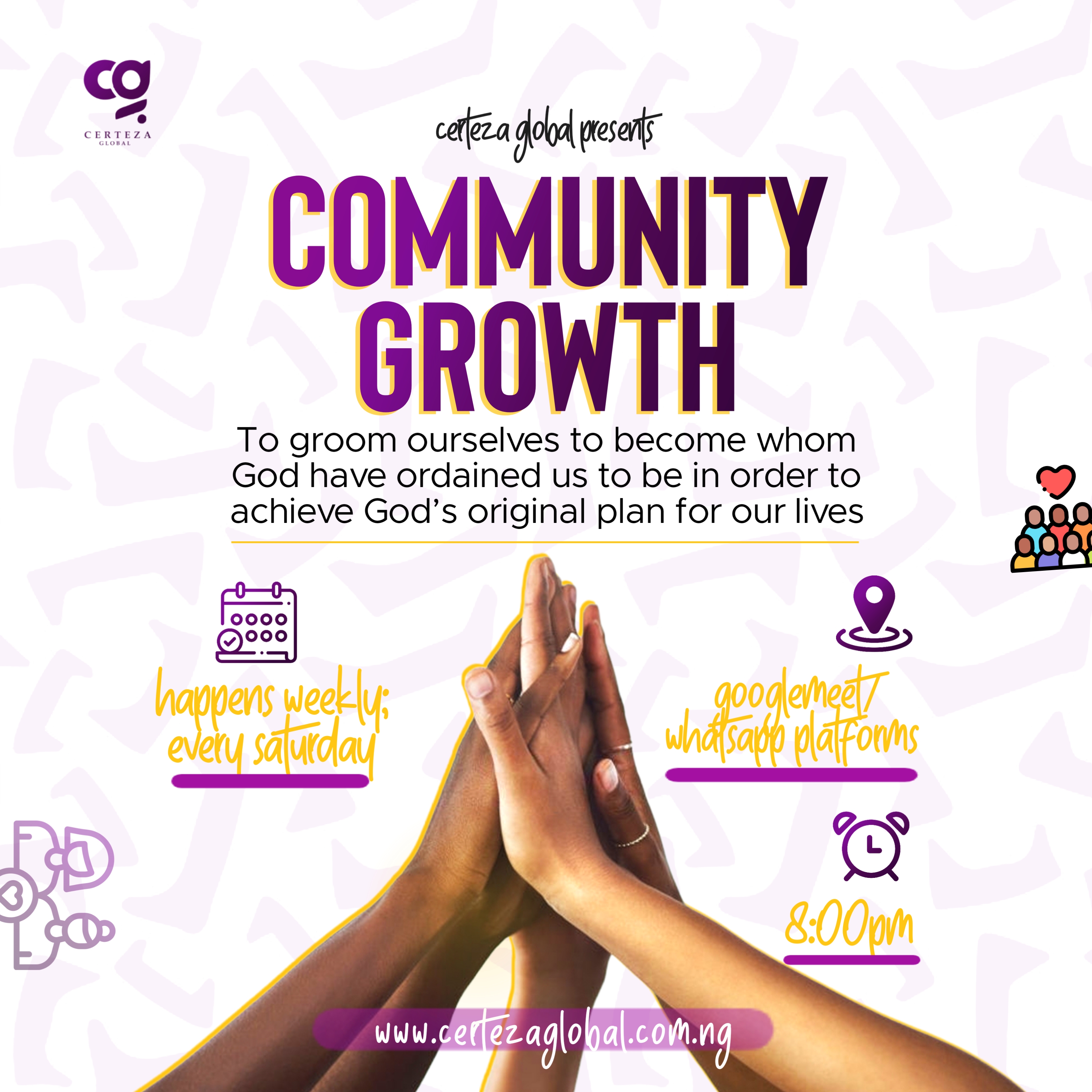.png)
Life can often feel overwhelming—between work, family, responsibilities, and personal growth, it’s easy to feel drained and out of balance. But God never intended for us to live in constant stress or exhaustion. His Word offers wisdom on how to live a healthy and balanced life, physically, emotionally, and spiritually.
True balance isn’t about doing everything; it’s about aligning our lives with God’s priorities and stewarding our bodies, minds, and souls in a way that honors Him.
Let’s explore biblical principles that guide us toward a healthy, purposeful, and well-balanced life.
1. Prioritize God First
Key Principle: A healthy life begins with a heart fully devoted to God.
Many of life’s imbalances come from putting work, people, or personal goals above God. However, when we seek Him first, everything else falls into place. Jesus Himself said:
📖 “But seek first the kingdom of God and His righteousness, and all these things shall be added to you.” (Matthew 6:33)
When God is at the center of our lives, He gives us wisdom on how to manage our time, energy, and priorities effectively.
✔︎ How to Apply This:
• Start your day with prayer and scripture before diving into daily tasks.
• Set spiritual goals just as you set personal and career goals.
• Make time for worship, study, and reflection, knowing that true peace comes from His presence.
2. Care for Your Physical Health
Key Principle: Your body is God’s temple—care for it wisely.
God created our bodies to be strong and functional, but neglecting our health can lead to fatigue, stress, and illness. The Bible encourages us to treat our bodies with care:
📖 “Do you not know that your bodies are temples of the Holy Spirit, who is in you, whom you have received from God? You are not your own.” (1 Corinthians 6:19)
Taking care of your health is an act of stewardship, ensuring that you have the strength and energy to fulfill your purpose.
✔︎ How to Apply This:
• Eat nutritious foods that nourish your body.
• Stay active with exercise and movement.
• Prioritize rest and sleep—even Jesus rested! (Mark 6:31)
• Avoid unhealthy habits that damage your body.
3. Set Healthy Boundaries
Key Principle: You don’t have to say ‘yes’ to everything—guard your peace.
Many people experience burnout because they struggle to set boundaries. But even Jesus took time away to rest and recharge:
📖 “But Jesus often withdrew to lonely places and prayed.” (Luke 5:16)
You are not called to do everything. It’s okay to say no to things that drain you and yes to what aligns with God’s plan.
✔︎ How to Apply This:
• Set clear priorities and don’t overcommit.
• Learn to say no without guilt.
• Protect time for yourself, your family, and God.
• Let go of people-pleasing and focus on God’s approval over human expectations.
4. Manage Stress with Trust & Prayer
Key Principle: Worry less, trust God more.
Stress and anxiety often stem from trying to control everything on our own. But God calls us to cast our burdens on Him:
📖 “Do not be anxious about anything, but in every situation, by prayer and petition, with thanksgiving, present your requests to God.” (Philippians 4:6)
Instead of carrying the weight of life’s challenges, we are called to surrender them to God in prayer and trust His plan.
✔︎ How to Apply This:
• When you feel overwhelmed, pause and pray before reacting.
• Write down your worries and surrender them to God.
• Meditate on scriptures that remind you of God’s peace and sovereignty.
• Trust that God is in control, even when life feels uncertain.
5. Invest in Healthy Relationships
Key Principle: Surround yourself with people who uplift and strengthen your faith.
Your relationships affect your spiritual and emotional health. The Bible warns against surrounding yourself with negative influences:
📖 “Do not be misled: ‘Bad company corrupts good character.’” (1 Corinthians 15:33)
Healthy, God-honoring relationships bring joy, encouragement, and growth. They help you stay accountable and remind you of God’s love and purpose for your life.
✔︎ How to Apply This:
• Choose friends who encourage your faith and personal growth.
• Spend time with people who uplift and inspire you, not drain you.
• Seek mentors and spiritual leaders for wisdom and guidance.
• Be intentional about fostering deep, meaningful connections with loved ones.
6. Work with Purpose, but Don’t Become a Slave to Work
Key Principle: Work hard, but remember that your worth is not in your productivity.
While hard work is good, overworking and neglecting rest can leave you exhausted and spiritually drained. God Himself modeled rest after creating the world:
📖 “By the seventh day, God had finished the work He had been doing; so on the seventh day, He rested from all His work.” (Genesis 2:2)
Your identity is not in what you do, but in who you are in Christ.
✔︎ How to Apply This:
• Work with excellence, but don’t sacrifice your health and family.
• Take time to rest, just as God commanded in the Sabbath principle.
• Seek a career that aligns with your purpose, rather than just financial gain.
• Remember that your job is not your source—God is (Philippians 4:19).
7. Stay Spiritually Rooted
Key Principle: A well-balanced life requires deep spiritual nourishment.
Without spiritual strength, everything else falls apart. The deeper your relationship with God, the more peace and clarity you’ll have in life.
📖 “Blessed is the one who does not walk in step with the wicked… but whose delight is in the law of the Lord, and who meditates on His law day and night.” (Psalm 1:1-2)
Your spirit needs daily nourishment just like your body does.
✔︎ How to Apply This:
• Spend time in God’s Word daily.
• Worship and pray consistently.
• Stay connected to a faith-filled community.
• Trust that God’s plan for your life is greater than your own plans.
Balance Comes from God
A healthy and balanced life isn’t about perfection, but about trusting God with every aspect of your life.
When you align your priorities with His Word, take care of your physical and emotional health, and rely on Him instead of your own strength, you will find true peace, purpose, and balance.
Which of these biblical principles resonates with you the most? Share your thoughts in the comments!
Would you love more content on faith-driven personal growth and well-being? Subscribe to Certeza Global for empowering articles, insights, and real-life stories that inspire purpose. Let’s rise together!
FAQs: Biblical Principles for Living a Healthy & Balanced Life
1. Does the Bible really talk about living a balanced life?
Yes! The Bible encourages balance in work, rest, relationships, and spiritual growth. Jesus Himself set an example by taking time to pray (Luke 5:16), resting when needed (Mark 6:31), and prioritizing His mission without becoming overwhelmed (John 4:34).
2. How can I put God first when I have a busy schedule?
Putting God first doesn’t mean neglecting responsibilities but rather making Him the foundation of everything you do. Start with small, intentional habits:
• Pray and read the Bible before checking your phone in the morning.
• Listen to worship or scripture-based podcasts while commuting.
• Dedicate moments throughout the day to acknowledge God and seek His guidance.
3. How do I set boundaries without feeling guilty?
Setting boundaries is biblical! Even Jesus withdrew from crowds to pray and rest (Luke 5:16). Boundaries help you:
• Protect your physical and emotional health.
• Prioritize what truly matters without overcommitting.
• Say "no" to distractions so you can say "yes" to God’s will.
4. Is it wrong to prioritize my health and self-care?
No! Your body is God’s temple (1 Corinthians 6:19), and caring for your health allows you to serve Him better. Jesus valued rest and nourishment (Mark 6:31, John 21:12). Self-care should be about stewardship, not selfishness.
5. What should I do when I feel overwhelmed by stress?
God doesn’t want us to live in stress and anxiety. He calls us to cast our burdens on Him (1 Peter 5:7). When overwhelmed:
• Pray and surrender your worries to God (Philippians 4:6-7).
• Take a deep breath and remind yourself of God’s promises.
• Set realistic expectations and don’t rely on your own strength (Proverbs 3:5-6).
6. How do I know if my life is truly balanced?
A balanced life aligns with God’s priorities, not the world’s definition of success. Ask yourself:
• Am I growing spiritually?
• Do I take care of my physical and mental well-being?
• Do I make time for relationships that uplift me?
• Do I trust God with my plans, or am I constantly striving?
7. How can I stay spiritually strong when life feels chaotic?
Chaos doesn’t have to steal your peace! Stay grounded by:
• Anchoring your heart in God’s Word daily (Psalm 1:2).
• Seeking a supportive faith community.
• Trusting that God is working, even in uncertainty (Romans 8:28).
.png)
.png)




.png)
.png)
.png)
.png)
.png)
.png)
.png)
.png)
.png)
.png)
.png)
.png)
.png)


.png)
.png)
.png)


.png)

